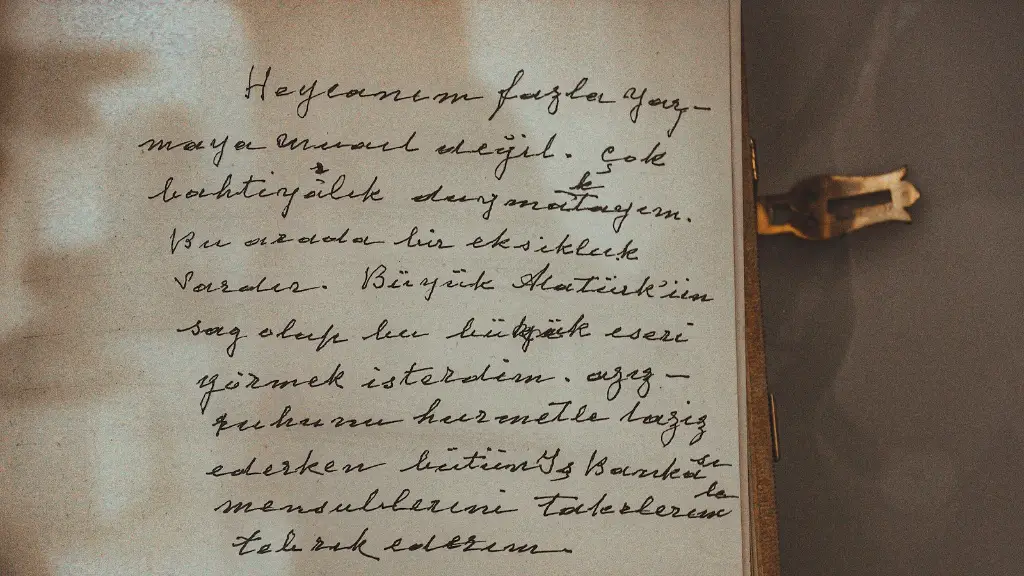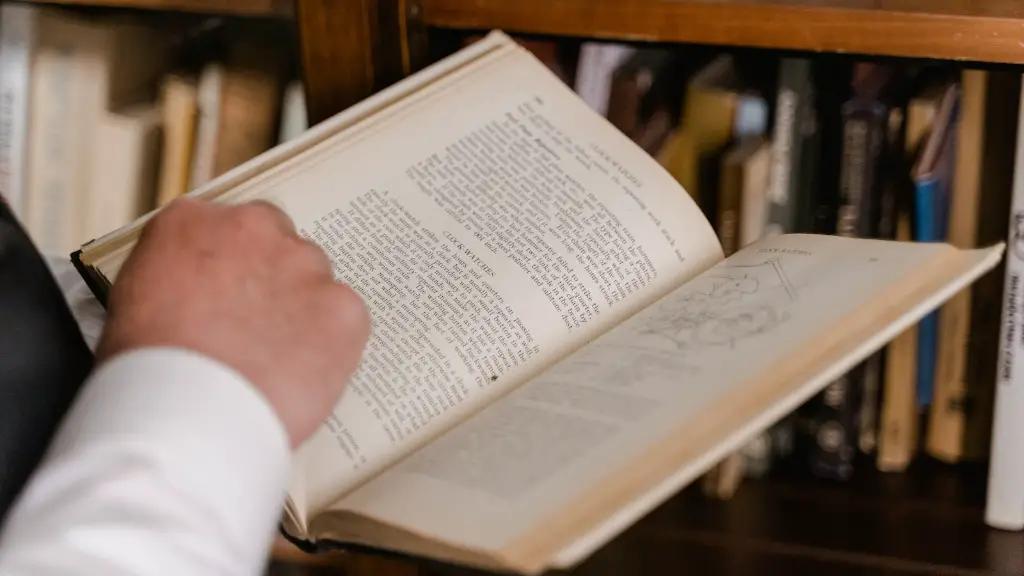Pablo Neruda is widely regarded as one of the most prolific and influential poets of the 20th century. His work is celebrated for its diversity and power, often described as being both sensual and spiritual. Neruda was one of the few poets to have enjoyed both public and critical acclaim, earning him the Nobel Prize for Literature in 1971. It is his unique and captivating poetic voice that earned him such acclaim, something that can only be truly appreciated by exploring the different types of poetry Neruda wrote.
Romantic Love Poetry
Pablo Neruda’s poetic works often focused on the theme of love, particularly romantic love. His name has become synonymous with love poetry and he is many times referred to as the ‘Latin American Poet of Love’. His love poetry encompasses a variety of topics, from the lushness of nature and the beauty of his beloved, to the anguish and confusion of heartbreak. In his poems, he was able to express both the joy and the pain of love with such beauty and timelessness.
Revolutionary and Political Poetry
Neruda was a staunch Communist, and this ideology was mirrored in his poems. His works explored the struggles of working-class people, the horrors of war, and his own feelings of frustration with a system he did not believe in. He wrote scathing critiques of an oppressive and unjust system and paid tribute to the courage of those who had gone before him in fighting for their beliefs and rights.
Nature Poetry
Another recurrent theme in the works of Pablo Neruda was that of nature. He had a profound appreciation for the beauty of his native Chile and strived to capture it through his words. He was able to turn simple descriptions of nature into vivid and inspiring images of the beauty that surrounded him. His poems of nature were often filled with love and wonder, as he felt deeply connected to the earth and all its wonders.
Experimental Poetry
Pablo Neruda was not one to settle with the conventions of poetry. He often experimented with new forms, styles, and techniques in order to push the boundaries of what could be said in a poem. He dabbled in concrete and pattern poetry, creating works that defied convention and pushed language to its limits. This kind of poetic experimentation made him a trailblazer in the world of Latin American and Spanish poetry, and his willingness to challenge the status quo remains an inspiration to poets and other artists to this day.
Confessional Poetry
One of the most remarkable things about Neruda’s work is his willingness to reveal his innermost thoughts and feelings. Through his confessional poetry, he let us into his mind and heart as few other poets ever have, showing us his hopes, fears, dreams, and struggles. His poems often combined the personal and the political, as if his personal life was a reflection of the larger world he lived in and the injustices he witnessed. His work is an enduring testament to the power of confessional poetry.
Children’s Poetry
Pablo Neruda was also known for his works written for children. He saw children as vessels of hope and innocence, and it was his desire to nurture that innocence and maintain that hope in his children’s poetry. His poems encouraged exploration and curiosity, while still somehow managing to make childhood feel like the safe and magical place it should be. He held the pain of life at bay with the simple beauty of his words, creating a world that children could feel safe enough to explore.
Impact of Pablo Neruda’s Poetry
None of Pablo Neruda’s works are easily forgotten, and his legacy as a poet lives on in the form of his works. In addition to being nominated for the Nobel Prize for Literature, Neruda has been the recipient of numerous honorary awards and distinctions. His works continue to inspire and challenge the way we look at life and love, providing us with comfort in the face of adversity and hope in the face of despair. His mark on history is indelible, and his influence on the world of poetry is immeasurable.
Analysis of Pablo Neruda’s Poetry
Pablo Neruda’s written words have and continue to remain relevant, to this day as they are often discussed and analyzed as if they were newly penned works. His poetry and his techniques have been studied and critiqued inside and outside of academia in an effort to better understand and appreciate his genius. Despite the passage of time, Neruda’s impact has not diminished, and his works are still seen as examples of excellence in the realm of both Latin American and world literature.
Influence of Pablo Neruda’s Poetry
The indelible mark left by Neruda’s poetry on the literary world cannot be overstated. His works have inspired generations of writers in language and style and helped to establish Chilean and Spanish poetry as some of the most important literature in the world. Moreover, his critiques of the sociopolitical structure have helped to propel forward important conversations regarding society and the politics of the day. In this way, his works have proven to be truly timeless.
Legacy of Pablo Neruda’s Poetry
It is clear that Pablo Neruda left behind a legacy that is both remarkable and powerful. His works remain important and relevant even after his passing, as he is widely referred to as one of the most important writers of the 20th century. He was able to capture his feelings and experiences with such grace, poise, and eloquence, that his poems can still move us to tears even today. It is this lasting power that has made Pablo Neruda one of the lasting icons of world literature.


